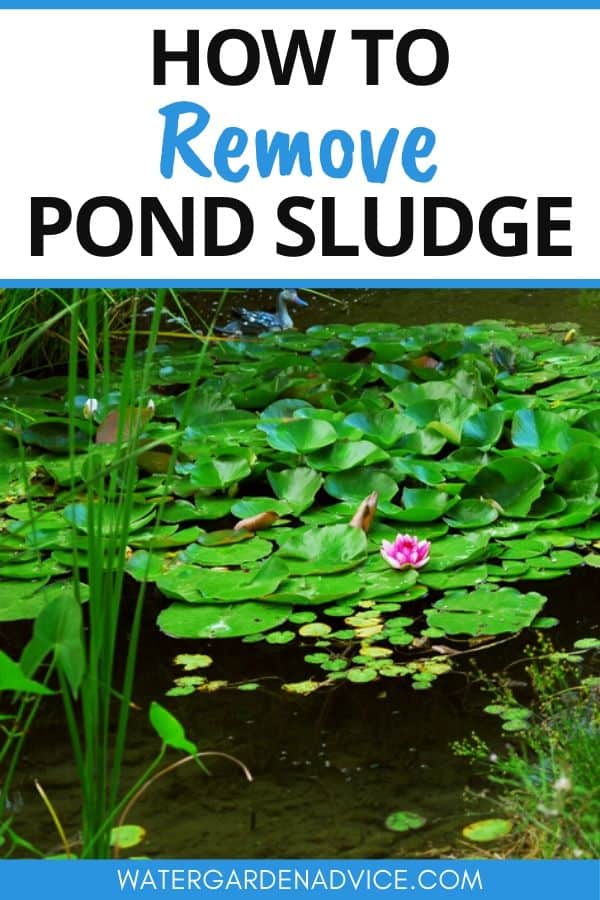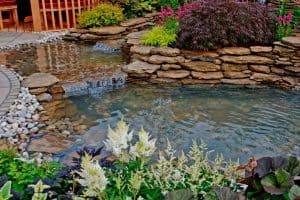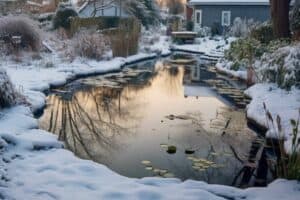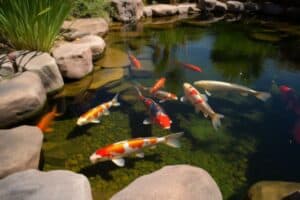Pond sludge is something that most backyard pond owners have to deal with at some stage.
If you have sludge in your pond it means that there’s a buildup of debris that has settled on the bottom of the pond.
In this article I’ll tell you what causes pond sludge and some easy ways to get rid of it.
This post contains affiliate links. Please read the disclosure for more info.
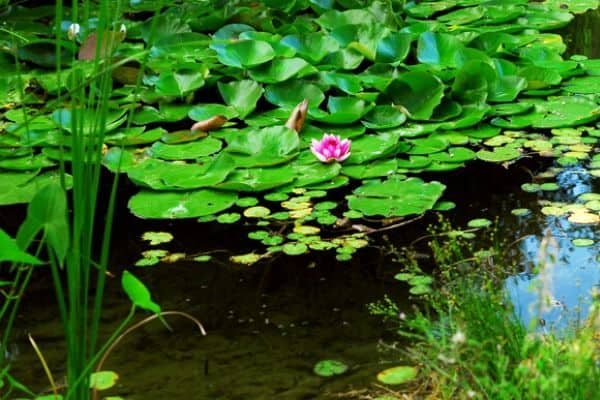
What is pond sludge?
Pond sludge is an accumulation of waste that settles at the bottom of the pond.
It’s usually made up of dead leaves, lawn clippings, fish droppings, dead algae and other waste that blows or washes into the pond.
Most ponds have a thin layer of sludge at the bottom, but if it becomes a thick mass of sludge it can create problems in the pond.
As the organic matter breaks down it reduces the oxygen level in the pond, creating dangerous gases like hydrogen sulfide and producing an anaerobic (low oxygen) environment that can be detrimental to your fish.
When the oxygen level in the pond is low, it can also harm the beneficial bacteria in the pond and increase the growth of the bad types of bacteria.
If your pond is starting to smell like rotten eggs, it’s a sign that your pond needs a good clean to remove the sludge and improve the water quality.
How to reduce pond sludge
Fishkeeping
If you have fish in your pond, the first step is to make sure that the pond isn’t overstocked.
Popular pond fish like koi can grow and reproduce fast, so in a few years your pond can easily become overcrowded, which leads to an increase in fish waste and sludge.
Be careful not to overfeed the fish, because the uneaten food will sink to the bottom of the pond and contribute to the sludge buildup.
It’s a good idea to use floating fish food pellets so you can see if the food is being left uneaten and scoop out the excess food before it starts to rot.
Organic matter
Leaves and plant matter that falls into the water will break down and contribute to the sludge buildup, so you’ll need to scoop them out regularly with a long handled net before they sink to the bottom.
You can also install netting over the pond to catch the leaves.
Aeration
Installing a pond spitter, waterfall or fountain
in your pond increases the numbers of aerobic bacteria that help to reduce built-up waste in the pond.
Aeration will also ensure that there is plenty of oxygen in the water for your fish to live happily.
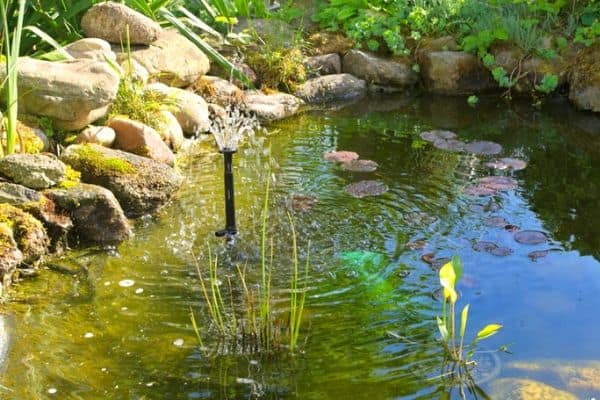
Filtration
A pond filter will help to keep the pond water clear and healthy so you won’t have thick sludge building up in the pond.
How to remove sludge from your pond
Pond vacuum
One of the quickest ways to remove sludge is to use a pond vacuum to suck up the sludge that is sitting on the bottom of the pond.
Pond vacuums will help to remove thick sludge and you can give the pond a vacuum every few months so that the sludge doesn’t build up again.
Scooping out the sludge
If you have a fine pond net, you can run it along the bottom of the pond to scoop out some of the thick sludge.
This method won’t get rid of all the sludge but it may help to reduce it.
Muck reducer tablets
Another way to remove pond sludge is to use muck reducer tablets that contain natural beneficial bacteria.
The bacteria helps to break down the sludge naturally and it won’t harm your fish.
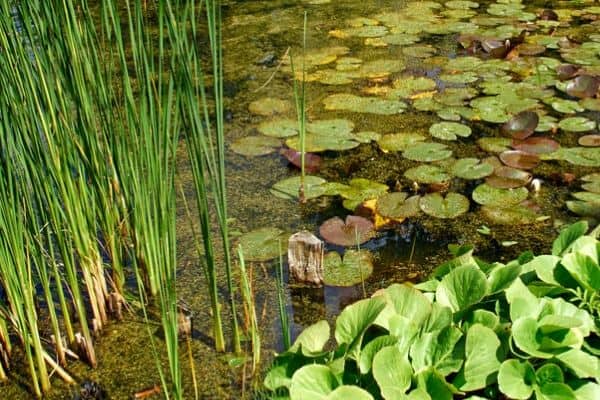
Draining the pond
As a last resort you can always drain the pond, but this means that you’ll have to start again from scratch to build up a healthy ecosystem in the pond.
Once the pond is empty, you can refill the pond with water and let it sit for a few days for the chlorine to off gas or use a chlorine neutralizer to remove the chlorine quickly.
Install a filter, fountain and beneficial bacteria to give your pond the best chance of staying sludge free.
Is pond sludge dangerous for fish?
A small amount of sludge won’t harm your fish, but a thick build up of sludge and muck can cause the oxygen level in the pond to fall , which can lead to fish kills.
So there are my tips for removing pond sludge.
Sludge buildup is a common problem for garden pond owners but by following the tips in this article, you should be able to get on top of the problem and have a healthy pond environment.
RELATED ARTICLES
Have you tried to remove sludge from your pond? Let me know in the comments below.
Are you on Pinterest? I have boards dedicated to Garden Ponds and Water Gardens that you may find interesting.
Don’t forget to pin this post so you can come back to it later.
